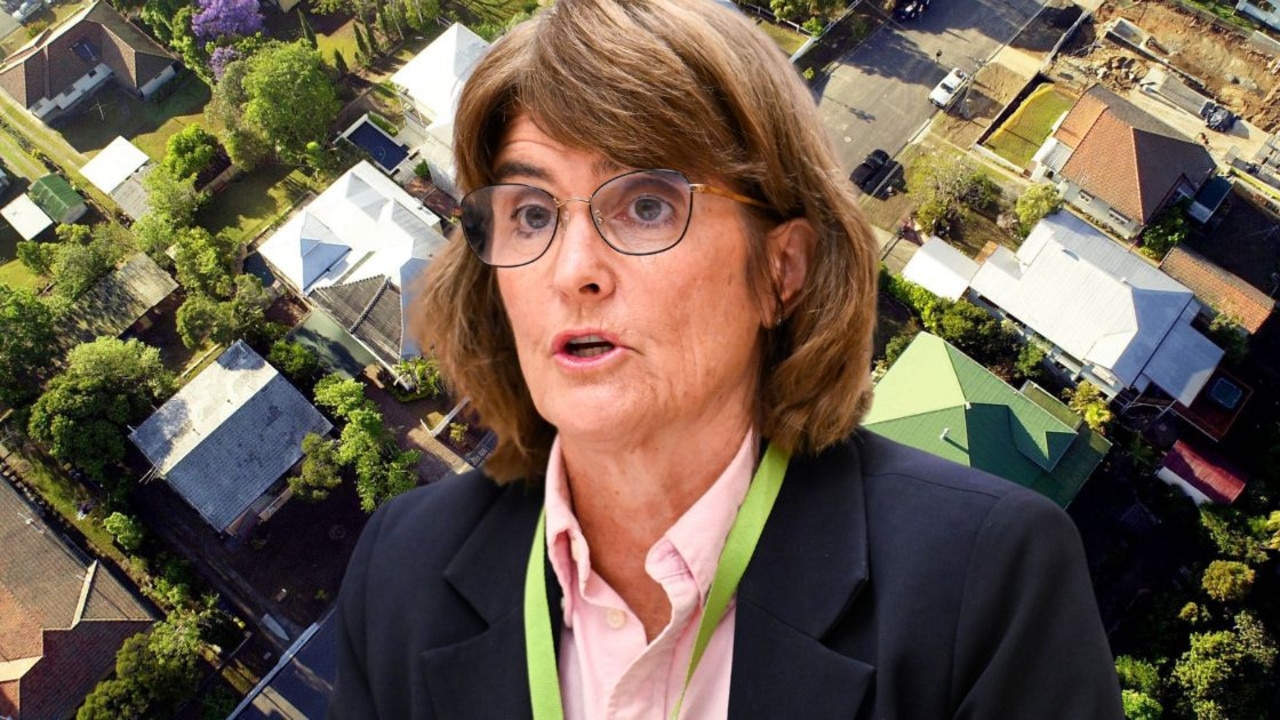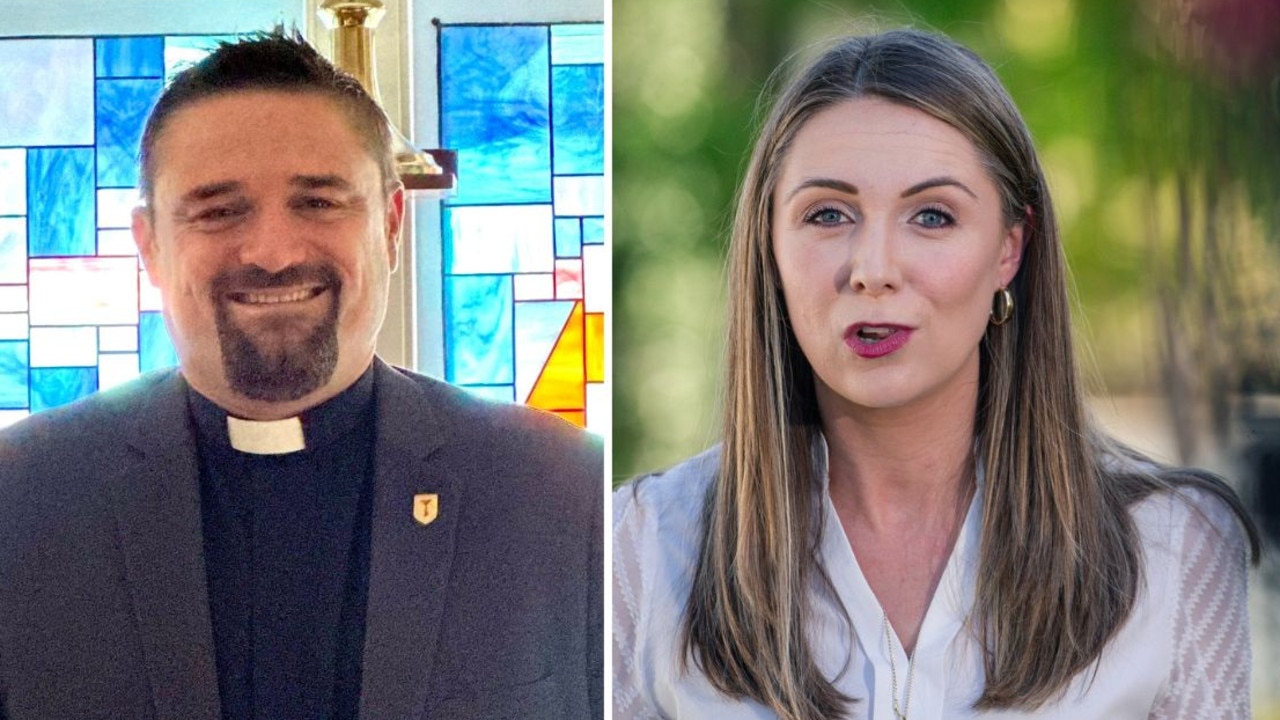Debt owed to World War II commandos remembered at reunion
ONCE the commandos of World War II walked courageously into the darkness certain only that torture and death would follow if they were captured. These days they fight their greatest enemy, age, writes Grantlee Kieza.

CM Insight
Don't miss out on the headlines from CM Insight. Followed categories will be added to My News.
ONCE Merv Fox and his comrades walked courageously into the darkness certain only that torture and death would follow if they were captured.
These days they fight their greatest enemy, age.
Merv, now 95, needs help from Victoria Cross recipient Keith Payne to get to his feet but then the old commando swings into gear, marching through the crowd in the Gold Coast hotel foyer, proudly wearing his green beret.
The Adelaide man was at a military function on the Gold Coast on Thursday along with some of his old comrades from the darkest days of Australia’s history, when young men and women risked their lives every day behind enemy lines to save their country from conquest.
In December 1941 Japanese air raids had left the pride of the American fleet in flames at Pearl Harbour and a tsunami of death and destruction surged south towards Australia.
Singapore was swamped and Australian civilians were being executed in Rabaul. Bombing raids hit Darwin, Horn Island, Broome, Townsville and Mossman. Japanese submarines attacked Newcastle and Sydney Harbour.

Queensland’s Lieutenant Commander Eric Feldt, the husband of Courier-Mail journalist Nancy Echlin, had established spy networks as a security screen across the islands to Australia’s north and now the undercover coastwatchers went to work using radios hidden in the jungle to transmit coded reports about Japanese movements.
Australia also sent in commandos to operate behind enemy lines.
Men from the M Special Unit landed on the Pacific Islands by parachute or submarine while the Z Special Unit, including Merv Fox, carried out 81 covert operations, waging guerrilla warfare.
The undercover agents, Merv, Jim Burrowes, 95, from Melbourne, Ern Rust, 97, from Sydney and Ronald “Dixie’’ Lee, 94, from Melbourne were all honoured at a tribute lunch at the QT Hotel on the Gold Coast on Thursday along with Elizabeth Lees, 96, a retired schoolteacher from Coolangatta who at 20-year-old was one of the officers working around the clock to decipher coded messages at army headquarters in Melbourne.
Their efforts 75 years ago helped turn the tide of World War II.

Danger was everywhere in enemy territory. The Japanese hunted the coastwatchers with dogs and used Australian prisoners for bayonet practice. The photograph of Len Siffleet, from M Special Unit, being beheaded by a Japanese soldier is no less haunting 75 years after the event.
Lieutenant General Ken Gillespie, 66, a former student at Inala High and former Chief of Army, presided over Thursday’s function saying it was an honour to be among his boyhood heroes.
Two of the special guests invited to Thursday’s function fell at the final hurdle. Coastwatcher Lionel Veale, passed away at Southport on August 19, nine days short of his 100th birthday and Jack Tredrea, one of the Z men who organised a savage indigenous resistance against the Japanese on Borneo, passed away in Adelaide in July.

Jim Burrowes is still fighting fit. He spied on the Japanese from his hide-out in the Baining Mountains above Rabaul. His brother Bob had been captured there by the Japanese and taken on the doomed hell ship the Montevideo Maru which went down in 1942 with the loss of all 1053 Australian prisoners. In 1943 Jim’s brother Tom was killed off Rabaul in the crash of a Beaufort Bomber.
Jim trained in morse code and unarmed combat near Beaudesert and at the Jungle Warfare Training Centre at Canungra in the Gold Coast hinterland. He practised landings in rubber boats at Surfers Paradise. Every day above Rabaul as he hid out in the heat and the rain, Jim knew he could be caught and killed. But he stuck to his guns
“I’d like Australia to remember all those who did not come home,’’ Jim says, “there were three boys in my family at Rabaul and I’m the only one who returned. We all had a job to do and we did it to the best of our ability.’’

Thursday’s function was the first time Ern Rust had seen old comrade Dixie Lee in 75 years.
Now in a wheelchair, Ern recalled that when he was hiding out at Bougainville, supplies were dropped in by plane but usually the coastwatchers foraged for whatever they could – bananas, coconut and pawpaw.
In 1943, coastwatcher Reg Evans saved the life of future American president John F Kennedy after his patrol boat had been rammed by a Japanese destroyer off the Solomon Islands. Evans had seen the incident and sent out scouts to find survivors.
On a much grander scale coastwatchers Jack Read and Paul Mason were able to warn American forces on Guadalcanal to prepare for a mass Japanese aerial attack.
American Admiral William F. Halsey later said that the coastwatchers had saved Guadalcanal, and that Guadalcanal, in turn, had saved the South Pacific.
This week’s tribute lunch was organised by a group of former commandos led by Allan Miles.
Merv Fox tells me that when he was fighting Japanese soldiers in close quarter combat in New Guinea it never occurred to him that he might live to be 95 or be honoured at a grand reception.
“Back then, I was only thinking about staying alive,’’ he says, “quite a few of my friends didn’t come home.’’
I tell him that I’d never been in a war so I wouldn’t know what that was like.
“You’ve never been in a war?,’’ he says, “then you’re lucky.’’
grantlee.kieza@news.com.au


